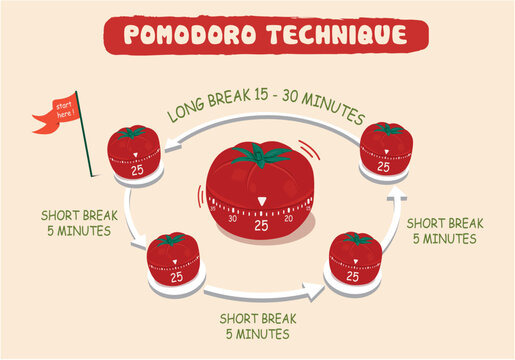Crush Procrastination and Ace Your Exams: A Chill Guide to Smashing Study Goals

Hey there, fellow procrastination aficionados! We get it – the struggle is real when it comes to gearing up for those looming exams. But fear not, because we've got your back with some killer strategies that will help you kick procrastination to the curb and stride confidently into the realm of academic triumph. Let's turn those study sessions from snooze-fests to success-fests – shall we?
The Procrastination Paradox: Decoding the Why
We've all been there – the looming exams, the mountain of books, and the ever-present temptation to put off the inevitable. But why does procrastination rear its head during exam prep? Let's unravel this mystery.
Fear of the Unknown: Nothing sends shivers down our spines quite like the fear of failure. The uncertainty of not meeting expectations can be paralyzing, leading us to procrastinate. Embracing the idea that mistakes are part of the learning process can transform fear into a motivating force.
Overwhelmed and Underprepared: Imagine facing a tsunami of textbooks, notes, and assignments – overwhelming, right? Procrastination often sets in when tasks seem insurmountable. The trick is to break down study sessions into smaller, more manageable steps, turning the daunting into the doable.
Instant Gratification: Living in an era of instant gratification, the allure of social media, streaming, and online wonders can be hard to resist. The promise of quick entertainment often sidetracks us from focused study. Creating a dedicated study environment and setting specific timeframes helps us resist the temptation for immediate pleasures.
Understanding these underlying reasons for procrastination is the first step in overcoming its grip. Armed with this knowledge, let's tackle the procrastination challenge head-on and pave the way for a more productive and stress-free exam preparation journey!
Breaking Free: Strategies to Overcome Procrastination
Now that we've dissected the why behind our procrastination tendencies during exam preparation, it's time to arm ourselves with a set of battle-tested strategies. Let's flip the script and transform procrastination into a thing of the past.
1. Set Clear Goals: The Roadmap to Success
Embarking on the journey of exam preparation without a clear destination is like setting sail without a compass. The importance of setting clear goals cannot be overstated; it serves as your roadmap through the vast landscape of study materials. Let's delve deeper into why this strategy is a game-changer and how you can implement it effectively.
- Understanding the Why: At the core of setting clear goals is understanding the purpose behind your study sessions. Ask yourself why you are investing time and effort into preparing for exams. Is it to grasp a deeper understanding of the subject matter, to achieve a specific grade, or perhaps to acquire practical knowledge for future applications? Identifying your underlying motivations provides a strong foundation for setting meaningful goals.
- Breaking Down the What: Once the overarching purpose is clear, break down your study objectives into smaller, actionable tasks. For example, if you're tackling a complex topic, define specific subtopics or chapters to cover within a given timeframe. This segmentation not only makes the overall goal more manageable but also allows you to track your progress more effectively.
- Specific, Measurable, Achievable, Relevant, Time-Bound (SMART): The SMART criteria are your allies in crafting clear goals. Ensure that your goals are Specific, Measurable, Achievable, Relevant, and Time-Bound. Instead of setting a vague goal like "study for chemistry," opt for a more precise one such as "complete two chapters on organic chemistry in the next three days." This level of specificity provides a clear target and a built-in timeframe for assessment.
- Creating a Study Schedule: Goals are most effective when integrated into a well-structured study schedule. Allocate specific time slots for each goal, considering your daily routines and energy levels. A well-designed schedule not only helps you stay organized but also reinforces the commitment to your objectives.
- Tracking Progress and Adaptation: Regularly monitor your progress toward your set goals. Implement checkpoints to assess how well you're advancing and whether adjustments are needed. If you find a particular topic more challenging than anticipated, be flexible enough to revise your goals accordingly. The key is to maintain a dynamic approach that adapts to your evolving understanding and study pace.
In essence, setting clear goals is not just a starting point; it's a continuous process that guides you through the entirety of your exam preparation journey. By understanding the why, breaking down the what, applying the SMART criteria, integrating goals into your study schedule, and consistently tracking progress, you create a robust roadmap that leads to success. So, grab that metaphorical compass, chart your course, and navigate the seas of exam preparation with confidence!
2. Use the Pomodoro Technique: Sprint, Rest, Repeat
In the fast-paced realm of exam preparation, mastering the art of focus is akin to unlocking a secret weapon. The Pomodoro Technique, a time management gem, offers a structured approach to harnessing productivity through timed intervals. Let's delve into the intricacies of this technique, exploring not only its simplicity but also the profound impact it can have on your study sessions.

- Understanding the Pomodoro Philosophy: The Pomodoro Technique is rooted in the philosophy of breaking down work into manageable intervals, traditionally 25 minutes in length, separated by short breaks. These intervals are known as "Pomodoros." The simplicity of this technique belies its effectiveness in combating procrastination and enhancing concentration.
- Setting the Timer: The Power of 25 Minutes: The magic number here is 25. Set a timer for this duration and immerse yourself completely in your chosen task. Knowing that you have a defined period to focus intensively creates a sense of urgency that can propel you into a state of heightened concentration.
- The Art of Short Breaks: A Prelude to Productivity: After each Pomodoro, reward yourself with a brief break, typically around 5 minutes. Use this time to stretch, take a brisk walk, or engage in a quick activity that provides a mental palate cleanser. These short breaks serve as a vital interlude, preventing mental fatigue and rejuvenating your cognitive resources.
- The Pomodoro Cycle: Rinse and Repeat: The beauty of the Pomodoro Technique lies in its cyclical nature. After completing four Pomodoros, treat yourself to a more extended break, typically around 15-30 minutes. This extended break serves as a reward for sustained focus and allows for deeper relaxation before diving back into the next cycle.
- Adapting the Technique to Your Flow: Personalizing Pomodoros: While the traditional Pomodoro duration is 25 minutes, flexibility is key. Experiment with different time intervals to find what works best for your unique rhythm and the nature of the task at hand. Some may find shorter or longer intervals more conducive to their focus and productivity.
- Pomodoro Apps and Tools: Streamlining Focus: Embrace technology to streamline your Pomodoro experience. Numerous apps and online tools are specifically designed for Pomodoro sessions, providing audible cues for intervals and breaks. Integrating these tools into your study routine adds an extra layer of structure and accountability.
- Cultivating a Pomodoro Mindset: Beyond the Timer: The Pomodoro Technique isn't just about timers and breaks; it's a mindset shift. It encourages a deep focus during work intervals and a deliberate detachment during breaks. Embrace each Pomodoro as a microcosm of productivity, and watch as this mindset permeates your entire study approach.
In essence, the Pomodoro Technique is more than a time management strategy; it's a dynamic rhythm that transforms the way you engage with your study material. By immersing yourself in focused sprints, rewarding your efforts with timely breaks, and cycling through intervals, you cultivate a heightened state of productivity. So, set your timer, embark on the Pomodoro journey, and witness the transformative power of focused, intentional study sessions.
3. Break Tasks into Smaller Chunks: Conquer the Micro, Win the Macro
Embarking on the Herculean task of exam preparation can be akin to facing a colossal mountain of study materials. However, the secret to conquering this academic Everest lies not in grappling with the entire mass at once, but in adopting the powerful strategy of breaking tasks into smaller, more manageable chunks. Let's explore the profound wisdom behind this approach and how it serves as a guiding principle in navigating the intricate terrain of effective study sessions.
- The Overwhelming Monolith: Understanding Task Intimidation: Picture this: a vast expanse of textbooks, notes, and assignments stretching infinitely before you. The sheer magnitude of the task can be overwhelming, triggering a sense of intimidation that often leads to procrastination. Breaking tasks into smaller chunks is the antidote to this formidable foe.
- The Art of Task Segmentation: Transforming the Daunting into the Doable: The crux of this strategy lies in the deliberate segmentation of study sessions. Instead of attempting to absorb an entire chapter or master an entire topic in one sitting, identify specific sections, concepts, or subtopics that can be tackled individually. By compartmentalizing the material, you transform the daunting into the doable.
- Setting Micro-Goals: Navigating the Study Landscape: Smaller chunks pave the way for setting micro-goals within each study session. These micro-goals serve as milestones, allowing you to track progress with precision. Completing a subtopic or understanding a specific concept becomes a victory in itself, fueling a sense of accomplishment and motivation.
- Effective Time Management: Maximizing Productivity: Breaking tasks into smaller chunks aligns seamlessly with effective time management. Instead of struggling through marathon study sessions, you can allocate focused time to each smaller segment. This not only prevents mental fatigue but also optimizes the quality of your learning, as your brain can absorb information more efficiently in digestible portions.
- Adaptable to Individual Pace: Tailoring the Approach: One of the beauties of this strategy lies in its adaptability to individual study paces. Whether you're a fast learner or prefer a more deliberate approach, breaking tasks into smaller chunks allows you to tailor your study sessions to your unique rhythm. It promotes a personalized, flexible approach that caters to your learning style.
- Building a Sense of Mastery: The Cumulative Effect: As you conquer each smaller chunk, you gradually build a sense of mastery over the material. This incremental progress contributes to a deeper understanding of the subject matter. Over time, the cumulative effect of mastering smaller segments translates into a comprehensive grasp of the broader topic.
- Mitigating Procrastination: A Proactive Defense: Procrastination often thrives in the face of overwhelming tasks. By breaking tasks into smaller, more approachable components, you erect a proactive defense against the procrastination monster. The bite-sized nature of each segment diminishes the perceived difficulty, making it less tempting to delay.
In essence, the strategy of breaking tasks into smaller chunks is a cornerstone of effective study practices. By understanding the psychological impact of task intimidation, adopting a deliberate approach to task segmentation, setting micro-goals, embracing effective time management, tailoring the strategy to individual pace, building a sense of mastery, and mitigating procrastination, you unlock a transformative methodology. So, don your metaphorical mountaineering gear, face the academic peaks one manageable chunk at a time, and witness how conquering the micro leads to triumphant victories on the macro scale of exam preparation.
4. Eliminate Distractions: Create Your Fortress of Focus
In the digital age, where a world of information and entertainment is just a click away, cultivating an environment conducive to deep focus and sustained concentration has become an art form. The strategy of eliminating distractions is not merely a step in the study process; it's the creation of a Fortress of Focus – a sanctuary where the mind can delve into the complexities of exam preparation without the constant pull of diversions. Let's explore the multifaceted aspects of this strategy, understanding not only its importance but also the nuanced ways in which you can fortify your mental fortress.
- Identifying and Understanding Distractions: The First Line of Defense: Before you can eliminate distractions, you must identify them. Distractions come in various forms – the incessant ping of notifications, the allure of social media, the beckoning call of unrelated websites, and even the ambient noise in your surroundings. Recognizing these distractions is the crucial first step toward building your Fortress of Focus.
- Creating a Distraction-Free Zone: Designing Your Study Haven: Transforming your study space into a distraction-free zone involves intentional design. Choose a quiet, well-lit area where you can comfortably settle into your study sessions. Ensure that the space is clutter-free, minimizing visual distractions that might vie for your attention.
- Digital Detox: Taming the Technology Temptation: Technology is a double-edged sword. While it provides access to valuable study resources, it also opens the floodgates to distractions. Consider implementing a digital detox during focused study periods. Silence your phone, close unnecessary tabs on your computer, and use website blockers if needed. By temporarily disconnecting, you strengthen the walls of your Fortress of Focus.
- Establishing Study Rituals: A Prelude to Concentration: Rituals signal to your brain that it's time to shift into study mode. Establish pre-study rituals to signal the start of your focused sessions. This could be something as simple as brewing a cup of tea, playing instrumental music, or engaging in a quick mindfulness exercise. These rituals act as mental cues, preparing your mind for undivided attention.
- Setting Boundaries with Others: Communicating Your Focus: If you share your study space with others, communicate your need for focus. Establish clear boundaries, indicating when you are in deep concentration and should not be disturbed. This not only enhances your own focus but also fosters a supportive environment for productive study sessions.
- Utilizing Noise-Canceling Tools: Harmonizing Your Sonic Space: External noise can be a formidable distraction. Invest in noise-canceling headphones or use ambient sound apps to drown out background noise. Creating a harmonious sonic environment shields your mind from auditory interruptions, reinforcing the resilience of your Fortress of Focus.
- Regular Breaks as Distraction Defense: Balancing Focus and Rest: Paradoxically, incorporating regular breaks into your study routine can act as a defense against distractions. Breaks provide a controlled outlet for the mind to wander, preventing the build-up of restlessness that might lead to succumbing to distractions during study time.
- Mindfulness Practices: Strengthening Mental Resilience: Integrate mindfulness practices into your study routine to strengthen your mental resilience against distractions. Techniques such as focused breathing or short meditation sessions help anchor your attention, making it less susceptible to external diversions.
In summary, eliminating distractions is not merely about creating a sterile study environment; it's about fortifying a mental sanctuary where deep focus can flourish. By identifying and understanding distractions, creating a distraction-free zone, implementing a digital detox, establishing study rituals, setting boundaries, utilizing noise-canceling tools, incorporating regular breaks, and embracing mindfulness practices, you construct a robust Fortress of Focus. Within this fortress, your mind can navigate the intricate pathways of exam preparation undeterred, emerging victorious in the quest for academic excellence. So, fortify your mental stronghold, let the distractions fade away, and revel in the focused productivity that awaits within your personal Fortress of Focus.
Armed with these strategies, you're equipped to conquer procrastination and pave the way for a successful exam preparation journey. Let's turn those study sessions into victories, one focused moment at a time!


